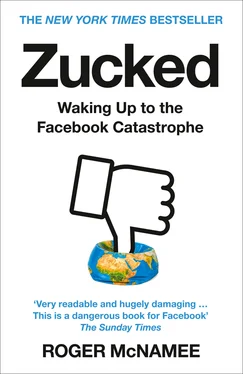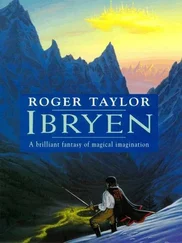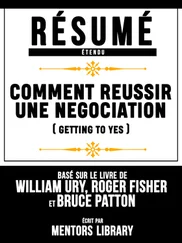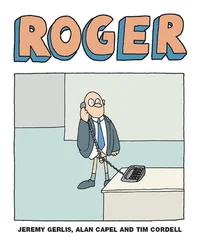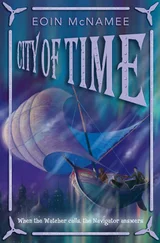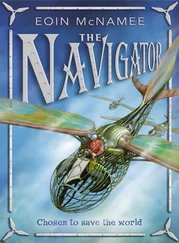I was not an ambitious child. Team sports did not play much of a role in my life. It was the sixties, so I immersed myself in the anti-war and civil rights movements from about age twelve. I took piano lessons and sang in a church choir, but my passion for music did not begin until I took up the guitar in my late teens. My parents encouraged me but never pushed. They were role models who prioritized education and good citizenship, but they did not interfere. They expected my siblings and me to make good choices. Through my teenage years, I approached everything but politics with caution, which could easily be confused with reluctance. If you had met me then, you might well have concluded that I would never get around to doing anything.
My high school years were challenging in a different way. I was a good student, but not a great one. I liked school, but my interests were totally different from my classmates’. Instead of sports, I devoted my free time to politics. The Vietnam War remained the biggest issue in the country, and one of my older brothers had already been drafted into the army. It seemed possible that I would reach draft age before the war ended. As I saw it, the rational thing to do was to work to end the war. I volunteered for the McGovern for President campaign in October 1971 and was in the campaign office in either New Hampshire or upstate New York nearly every day from October 1971, the beginning of my tenth-grade year, through the general election thirteen months later. That was the period when I fell in love with the hippie music of San Francisco: the Grateful Dead, Jefferson Airplane, Quicksilver Messenger Service, Big Brother and the Holding Company, and Santana.
I did not like my school, so once the McGovern campaign ended, I applied to School Year Abroad in Rennes, France, for my senior year. It was an amazing experience. Not only did I become fluent in French, I went to school with a group of people who were more like me than any set of classmates before them. The experience transformed me. I applied to Yale University and, to my astonishment, got in.
After my freshman year at Yale, I was awarded an internship with my local congressman, who offered me a permanent job as his legislative assistant a few weeks later. The promotion came with an increase in pay and all the benefits of a full-time job. I said no—I thought the congressman was crazy to promote me at nineteen—but I really liked him and returned for two more summers.
A year later, in the summer of 1976, I took a year off to go to San Francisco with my girlfriend. In my dreams, I was going to the city of the Summer of Love. By the time I got there, though, it was the city of Dirty Harry, more noir than flower power. Almost immediately, my father was diagnosed with inoperable prostate cancer. Trained as a lawyer, my father had started a brokerage firm that grew to a dozen offices. It was an undersized company in an industry that was undergoing massive change. He died in the fall of 1977, at a particularly difficult time for his business, leaving my mother with a house and little else. There was no money for me to return to college. I was on my own, with no college degree. I had my guitar, though, and practiced for many hours every day.
When I first arrived in San Francisco, I had four hundred dollars in my pocket. My dream of being a reporter in the mold of Woodward and Bernstein lasted for about half a day. Three phone calls were all it took to discover that there were no reporter jobs available for a college dropout like me, but every paper needed people in advertising sales. I was way too introverted for traditional sales, but that did not stop me. I discovered a biweekly French-language newspaper where I would be the entire advertising department, which meant not only selling ads but also collecting receivables from advertisers. When you only get paid based on what you collect, you learn to judge the people you sell to. If the ads didn’t work, they wouldn’t pay. I discovered that by focusing on multi-issue advertising commitments from big accounts, such as car dealerships, airlines, and the phone company, I could leverage my time and earn a lot more money per issue. I had no social life, but I started to build savings. In the two and a half years I was in San Francisco, I earned enough money to go back to Yale, which cost no more than 10 percent of what it costs today.
Every weekday morning in San Francisco I watched a locally produced stock market show hosted by Stuart Varney, who went on to a long career in broadcasting at CNN and Fox Business Network. After watching the show for six months and reading Barron’s and stacks of annual reports, I finally summoned the courage to buy one hundred shares of Beech Aircraft. It went up 30 percent in the first week. I was hooked. I discovered that investing was a game, like Monopoly, but with real money. The battle of wits appealed to me. I never imagined then that investing would be my career. In the fall of 1978, I reapplied to Yale. They accepted me again, just weeks before two heartbreaking events chased me from San Francisco: the mass suicide of hundreds of San Franciscans at Jonestown and the murder of San Francisco’s mayor and supervisor Harvey Milk by another member of the city’s board of supervisors.
Celebrating my first Christmas at home since 1975, I received a gift that would change my life. My older brother George, ten years my senior, gave me a Texas Instruments Speak & Spell. Introduced just months earlier, the Speak & Spell combined a keyboard, a one-line alphanumeric display, a voice processor, and some memory to teach elementary school children to pronounce and spell words. But to my brother, it was the future of computing. “This means that in a few years, it will be possible to create a handheld device that holds all your personal information,” he said.
He told me this in 1978. The Apple II had been introduced only a year earlier. The IBM PC was nearly three years in the future. The PalmPilot was more than eighteen years away. But my brother saw the future, and I took it to heart. I went back to college as a history major but was determined to take enough electrical engineering courses that I could design the first personal organizer. I soon discovered that electrical engineering requires calculus, and I had never taken calculus. I persuaded the professor to let me take the entry-level course anyway. He said if I did everything right except the math, he would give me a B (“for bravery”). I accepted. He tutored me every week. I took a second, easier engineering survey course, in which I learned concepts related to acoustics and mechanical engineering. I got catalogues and manuals and tried to design an oversized proof of concept. I could not make it work.
A real highlight of my second swing through Yale was playing in a band called Guff. Three guys in my dorm had started the band, but they needed a guitar player. Guff wrote its own songs and occupied a musical space somewhere near the intersection of the Grateful Dead, Frank Zappa, and punk rock. We played a ton of gigs, but college ended before the band was sufficiently established to justify making a career of it.
The band got paid a little money, but I needed to earn tuition-scale money. Selling ads paid far better than most student jobs, so I persuaded the Yale Law School Film Society to let me create a magazine-style program for their film series. I created a program for both semesters of senior year and earned almost enough money to pay for a year of graduate school.
But before that, in the fall of my senior year, I enrolled in Introduction to Music Theory, a brutal two-semester course for music majors. I was convinced that a basic knowledge of music theory would enable me to write better songs for my band. They randomly assigned me to one of a dozen sections, each with fifteen students, all taught by graduate students. The first class session was the best hour of classroom time I had ever experienced, so I told my roommate to switch from his section to mine. Apparently many others did the same thing, as forty people showed up the second day. That class was my favorite at Yale. The grad student who taught the class, Ann Kosakowski, did not teach the second semester, but early in the new semester, I ran into her as she exited the gymnasium, across the street from my dorm. She was disappointed because she had narrowly lost a squash match in the fifth game to the chair of the music department, so I volunteered to play her the next day. We played squash three days in a row, and I did not win a single point. Not one. But it didn’t matter. I had never played squash and did not care about the score. Ann was amazing. I wanted to get to know her. I invited her on a date to see the Jerry Garcia Band right after Valentine’s Day. A PhD candidate in music theory, Ann asked, “What instrument does Mr. Garcia play?” thinking perhaps it might be the cello. Ann and I are about to celebrate the fortieth anniversary of that first date.
Читать дальше
